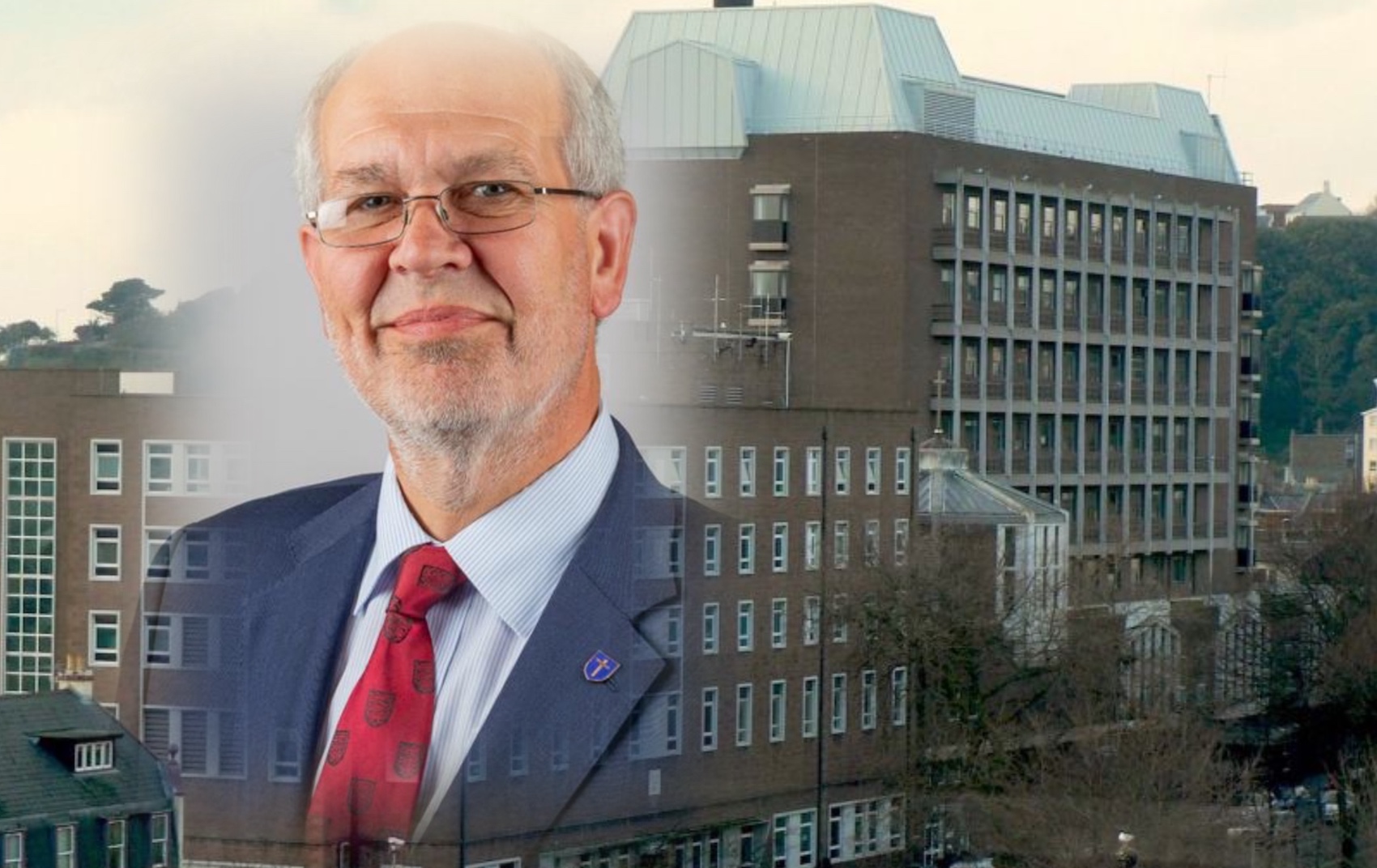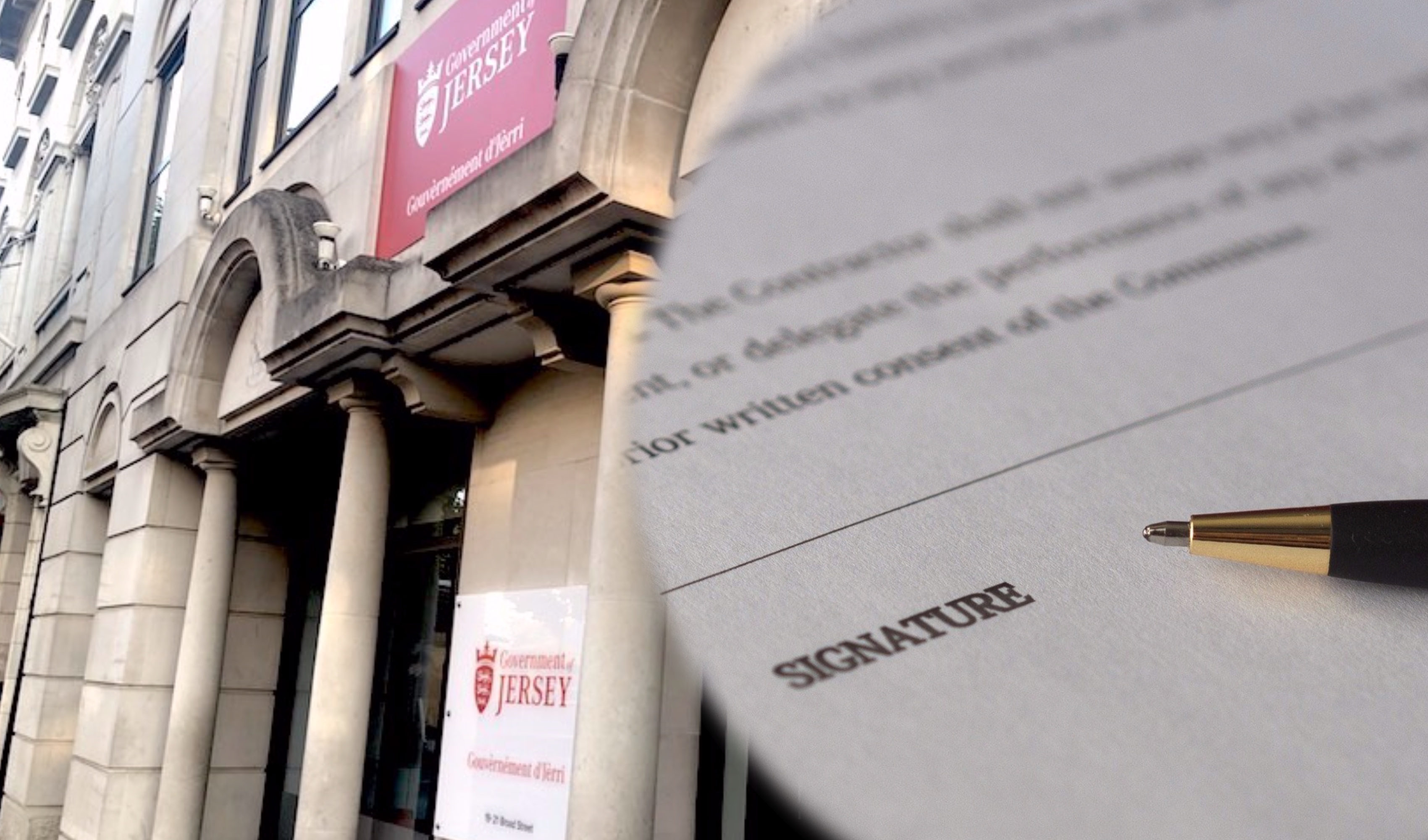


There was a time when doing a ‘condition check’ on an injured person was a day-to-day task of a local news reporter.
Perhaps there had been a car accident, a serious assault, a sea rescue, or a fire.
The local media have always reported those events, since in a small community, they are both of public interest, and of legitimate interest to the public.
The information gleaned from that ‘condition check’ was not detailed in a personal sense, only ever generic, superficial – usually a variation on ‘critical/stable,’ or the more recent, ‘life-changing/threatening injuries.’ That’s it. But it was enough.
Last week we learned (following zero consultation) that even the scarce generic detail mentioned above has now been deemed to be too invasive by the Health Minister, and will only be given if the person involved specifically agrees – which they may well not be in any condition to do, or have other priorities. Perhaps they’ll be asked to sign a form.

Pictured: Health Minister, Deputy Richard Renouf said last week- “The Health and Community Services department is unable to disclose patient details, including condition checks, unless the patient concerned has specifically given their permission. This is for patient confidentiality purposes.”
Keep in mind here, that the Government will also only now confirm a death, once it has been formally certified by the Registrar - an official process which naturally can take some time.
The net result is islanders will become less well informed about events in their own community, and accurate, confirmed, information will become harder to come by.
Consider this fictional example: after the heroic efforts of a group of local people on the beach, a man is pulled from the sea alive, but unconscious.
Clearly, the media should report that fact, and the local community should know about it, both so they can support the family, but also recognise the brave actions of the rescuers.
Under the new regime, the media will not be able to report that man’s condition, as being unconscious, he will be unable to give permission; no one outside of the medics, and perhaps his close family, will know what has happened to him. And if he dies, that situation may continue for days, or even weeks.
The news reports will now simply have to say, that a man has been pulled from sea – but we can’t report what state he is in, or if he has survived. The main local news media will not be able to supply that information, which will leave speculation to fill the vacuum instead. Rumours will fast become ‘fact’ when nothing else is provided to challenge them.
People will naturally just build a picture from what they read on social platforms instead: "My next door neighbour works at the hospital, and they spoke to a nurse, who told them...etc."
It's a tricky thing, information: the more you try and tighten your fist to control it, the more it squeezes out, in fragmented and twisted form, between your fingers.

Pictured: personal privacy can be prioritised over the public interest in cases involving Government staff.
This abrupt end to ‘condition checks’ is just one example of how the official provision of information is changing in Jersey today – and we should notice that, because it really matters.
Other items in the ‘missing-in-action’ box, is the trend towards anonymisation of court judgements and redaction of court lists; the ‘answering’ of tough questions with an unrelated official statement; and the cute use of FoI rules to delay or obfuscate.
The importance of information can dissipate to mere interest with the passage of time. That’s why governments only open sensitive archives after many decades have passed.
Timing is all, something we saw recently in the row over Westmount road – essentially the residents’ point was that States Members may take a different view of the project, if they saw detailed plans for the changes before voting them through. Those details will emerge during the planning process – by which time the clear political desperation to ‘just get it done’ will have pushed the project beyond the point of no return.
The reasons for not giving out information are always beguiling: commonly, we will be told (as in the case of the outgoing Government CEO’s contract, or the exact circumstances surrounding the departure of the Chief Statistician) that it’s personal, so nothing at all can be said. Or disclosure may breach someone’s human rights, or often, the data protection law. Or in the case of ‘condition checks,’ which have clearly been acceptable for many decades, but now, they would breach patient confidentiality. Is that always strictly true? Is it in the public interest?
Watch very carefully where those seductive stepping stones lead. On their own, each one seems reasonable, obvious even…why haven’t we clamped down on this before? But when put together, they are essential steps on a path leading to a place where ignorance, rumour and speculation replace knowledge, accuracy and truth.
What is - ostensibly - done to protect, can actually just blind and confuse. Essentially, it all comes down to just how much we really value the provision of timely, accurate and comprehensive information. That's a question we are all, right now, being asked to answer.
Comments
Comments on this story express the views of the commentator only, not Bailiwick Publishing. We are unable to guarantee the accuracy of any of those comments.